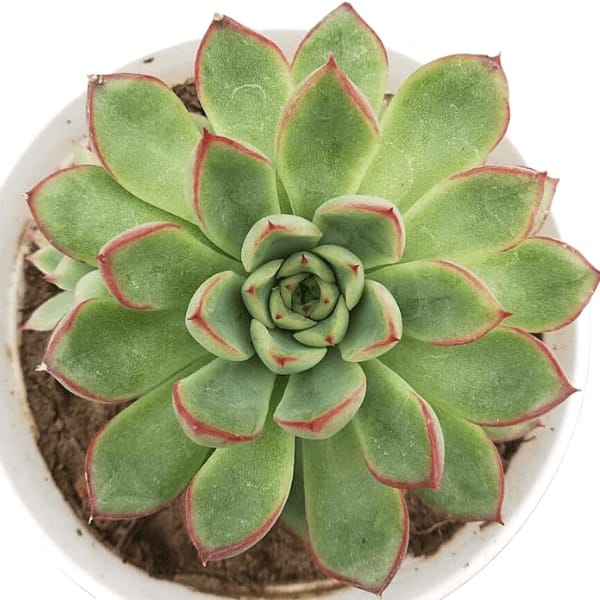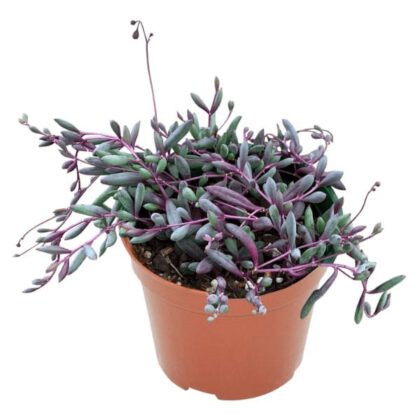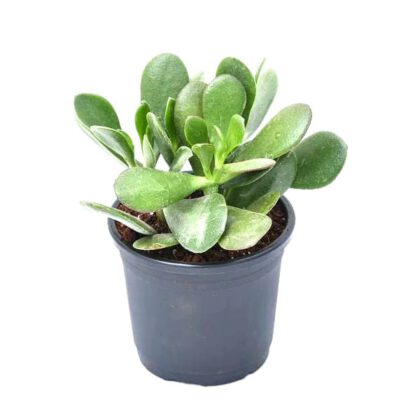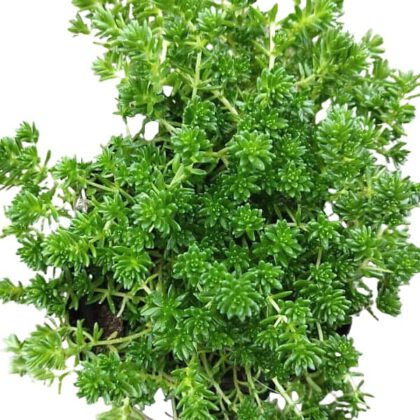Plant Care
- Light: Echeveria pulidonis thrives in bright, indirect sunlight. Place it near a window where it can receive several hours of sunlight each day. Protect it from intense midday sun, especially in hot climates.
- Watering: Water sparingly but deeply, allowing the soil to dry out between waterings. Water less frequently during the winter months when the plant is dormant.
- Soil: Use a well-draining succulent or cactus potting mix. A mix formulated for desert plants works well for Echeveria pulidonis to prevent waterlogging and root rot.
- Temperature: Maintain moderate temperatures between 59-86°F (15-30°C) for optimal growth. Protect the plant from temperatures below 50°F (10°C) as cold conditions can damage the leaves.
- Humidity: Echeveria pulidonis prefers low humidity levels typical of arid environments. It can adapt to indoor conditions but benefits from good air circulation.
- Fertilization: Feed the plant with a balanced, water-soluble fertilizer diluted to half strength once a month during the growing season (spring and summer). Avoid fertilizing during the dormant period.
- Container: Choose a shallow pot with drainage holes to plant Echeveria pulidonis. Ensure the container allows excess water to escape to prevent waterlogging.
- Pruning: Remove any dead or dried leaves as needed to maintain the plant’s appearance. Trim leggy growth to encourage a compact, bushy form.
- Propagation: Echeveria pulidonis can be propagated from offsets (pups) that develop around the base of the mother plant. Remove these offsets and plant them in a separate container with well-draining soil.
- Pests: Watch for common succulent pests such as aphids, mealybugs, and spider mites. Treat infestations promptly with insecticidal soap or neem oil.
- Support: Echeveria pulidonis generally does not require support. Ensure the plant is stable in its container and avoid overcrowding to promote healthy growth.




